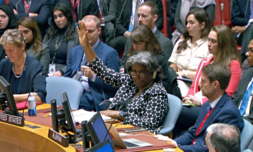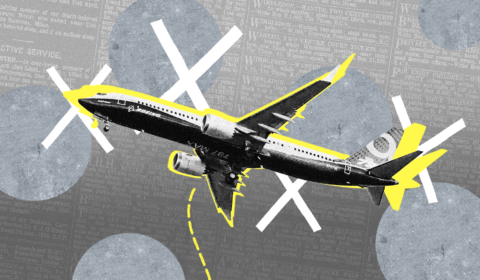In the Red Sea, a growing crisis fueled by Houthi attacks on commercial vessels is shocking the global economy, disrupting trade routes, and raising concerns about the broader stability of the region.
Since mid-November, there has been a growing trend of Houthi militants targeting commercial vessels entering the Suez Canal through its southern end. This is in response to Israel’s military strikes on Gaza.
The Houthis have attempted to board ships while employing drones and missiles to target vessels. While most ships have sustained minimal damage, the Galaxy Leader, a tanker, was successfully hijacked on November 19th. There have been no reported fatalities, yet the situation remains tense and continues to escalate.
This developing conflict in the Red Sea poses a critical threat that demands prompt action, given the strategic importance of the Suez Canal to the global supply chain. As a crucial maritime route for the transportation of goods, any disruption in this region could have far-reaching consequences on international trade and economic stability.
What is the Suez Canal?
The Suez Canal holds immense geopolitical and economic significance as a vital waterway connecting the Mediterranean Sea to the Red Sea, facilitating maritime trade and transportation.
The canal is known to carry at least 12% of global trade with the most significant goods shipped through this region being oil and gas. The route is crucial for global trade since it is the fastest passage between the Atlantic Ocean and the Indian Ocean, granting a cost and time-effective method for trade between Europe and Asia.
Additionally, the Suez Canal has been a symbol of national pride and strategic importance for Egypt, as it generates substantial revenue through tolls and fees, supporting the country’s economy and infrastructure development. The canal’s continued operation and security are paramount to the stability of global trade and geopolitics.
With the latter factor in mind, the Houthis have been targeting a strait located at the southern end of the canal that falls between Djibouti and Yemen in a region known as the Bab el-Mandeb Strait.
Who are the Houthis?
The Houthis are a Yemeni group of rebels who have received backing from Iran. The Houthi movement, officially known as Ansar Allah, emerged in the 1990s as a Shia revival focused on representing marginalized Zaidis. It rapidly evolved into a powerful political and military organization.
The Shia revival movement encompasses of the Shia Muslims’ increased political, religious, and social assertiveness in various parts of the world. The Zaidis are a branch of Shia Islam who face marginalization by the Sunni-dominated government and the ongoing civil war in Yemen.
Now at the center of this domestic conflict, the Houthis face accusations of sectarianism. They claim to fight for economic justice against foreign influences, making them a key player in a volatile region.
American officials are concerned about the Houthis’ domestically produced missiles, which have become more accurate and deadly over time. They have even used them to attack Israel.
Iran’s backing of the Houthis is part of its ‘Axis of Resistance’ which is an alliance of militias who are against Israel and the West. The alliance is tripartite including Gaza’s Hamas and Lebanon’s Hezbollah aside from the Houthis. Hence, in response to Israel’s attack on Gaza, the Houthis have sought to strike ships in the Red Sea.




















